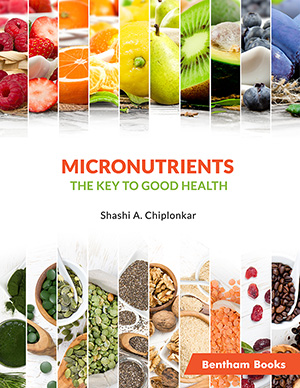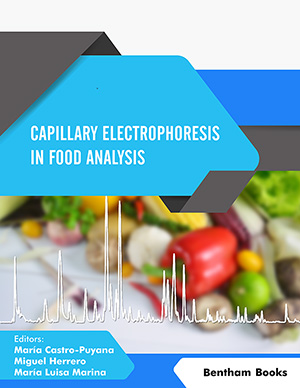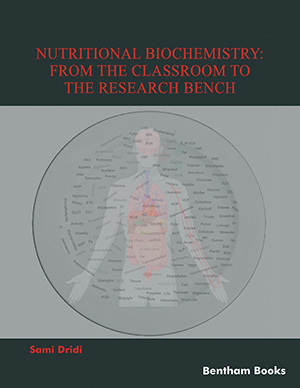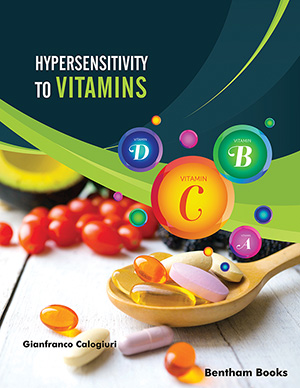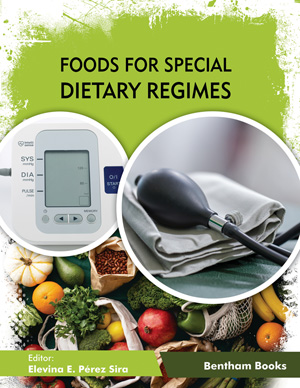
Abstract
Magnesium is an essential mineral with several dietary sources including whole-grains, green leafy vegetables, legumes, and nuts. The western diets that are characterized by a high intake of processed foods contribute to a high prevalence of inadequate magnesium intake in industrialized countries. Accumulating data from animal models and small trials in humans support a pivotal role of magnesium in glucose homeostasis, insulin secretion and action. In observational studies, magnesium intake has been inversely associated with insulin resistance, type 2 diabetes mellitus (DM), hypertension, and cardiovascular diseases (CVD). Herein we systematically review the current literature from human population studies on dietary magnesium intake and a host of metabolic disorders, focusing primarily on type 2 DM, hypertension, and CVD. The available evidence indicates that dietary magnesium may favorably affect a cluster of metabolic abnormalities including insulin resistance, hypertension, and dyslipidemia, known as metabolic syndrome. The metabolic syndrome is prevalent worldwide and is associated with greater risks of major chronic diseases, particularly type 2 DM and CVD. Further, available epidemiologic data provide strong support for dietary recommendations to increase consumption of magnesium-rich foods for the primary prevention of the metabolic syndrome and associated chronic diseases. Future studies are warranted to assess the efficacy of magnesium supplementation in the prevention and/or treatment of metabolic syndrome and type 2 DM in human populations.
Keywords: magnesium intake, metabolic risk factors, hypertension, insulin resistance, type 2 diabetes, cardiovascular disease
Current Nutrition & Food Science
Title: Relations of Magnesium Intake with Metabolic Risk Factors and Risks of Type 2 Diabetes, Hypertension, and Cardiovascular Disease: A Critical Appraisal
Volume: 1 Issue: 3
Author(s): Yiqing Song, Earl S. Ford, JoAnn E. Manson and Simin Liu
Affiliation:
Keywords: magnesium intake, metabolic risk factors, hypertension, insulin resistance, type 2 diabetes, cardiovascular disease
Abstract: Magnesium is an essential mineral with several dietary sources including whole-grains, green leafy vegetables, legumes, and nuts. The western diets that are characterized by a high intake of processed foods contribute to a high prevalence of inadequate magnesium intake in industrialized countries. Accumulating data from animal models and small trials in humans support a pivotal role of magnesium in glucose homeostasis, insulin secretion and action. In observational studies, magnesium intake has been inversely associated with insulin resistance, type 2 diabetes mellitus (DM), hypertension, and cardiovascular diseases (CVD). Herein we systematically review the current literature from human population studies on dietary magnesium intake and a host of metabolic disorders, focusing primarily on type 2 DM, hypertension, and CVD. The available evidence indicates that dietary magnesium may favorably affect a cluster of metabolic abnormalities including insulin resistance, hypertension, and dyslipidemia, known as metabolic syndrome. The metabolic syndrome is prevalent worldwide and is associated with greater risks of major chronic diseases, particularly type 2 DM and CVD. Further, available epidemiologic data provide strong support for dietary recommendations to increase consumption of magnesium-rich foods for the primary prevention of the metabolic syndrome and associated chronic diseases. Future studies are warranted to assess the efficacy of magnesium supplementation in the prevention and/or treatment of metabolic syndrome and type 2 DM in human populations.
Export Options
About this article
Cite this article as:
Song Yiqing, Ford S. Earl, Manson E. JoAnn and Liu Simin, Relations of Magnesium Intake with Metabolic Risk Factors and Risks of Type 2 Diabetes, Hypertension, and Cardiovascular Disease: A Critical Appraisal, Current Nutrition & Food Science 2005; 1 (3) . https://dx.doi.org/10.2174/157340105774574893
| DOI https://dx.doi.org/10.2174/157340105774574893 |
Print ISSN 1573-4013 |
| Publisher Name Bentham Science Publisher |
Online ISSN 2212-3881 |
Call for Papers in Thematic Issues
Bioactive Compounds, Functional Foods, Metabolism, and Health
Nutrition, metabolism, and their intervention strategies have become focal points of interest in the study of metabolic syndrome and health. Bioactive compounds, phytochemicals, and functional foods play crucial roles in modulating metabolic processes and improving human health. Moreover, the composition of the gut microbiome is also believed to be closely ...read more
Harnessing Bioactive Compounds from Food Waste: Sustainable Extraction Strategies and Health Applications
Food waste presents a significant challenge across the postharvest cycle, from agricultural production to distribution. However, within this waste lies a treasure trove of bioactive chemicals that hold immense potential for nutraceuticals, functional foods, and postharvest additives, including antimicrobials. Various extraction methods, such as solvent extraction (SE), supercritical fluid extraction ...read more
Natural Bioactive Compounds Derivatives in Nutraceutical and Food Science
In the last years, plants have been widely used for their numerous properties and now there is growing interest in the study of classes of compounds obtained from plant species or derived from them. The importance of these natural compounds lies in their important therapeutic purposes, and in their capability ...read more
The Core Linkage Between Probiotics Encapsulation by the Natural Phytochemicals as Health and nutritional-related Functional Products: Recent Applications
The exploration of probiotics encapsulation through natural phytochemicals has emerged as a pivotal area of research, particularly in the context of health and nutrition. Probiotics, defined as live microorganisms that confer health benefits to the host, have gained considerable attention for their role in enhancing gut health, boosting the immune ...read more
Related Journals
 2
2
- Author Guidelines
- Graphical Abstracts
- Fabricating and Stating False Information
- Research Misconduct
- Post Publication Discussions and Corrections
- Publishing Ethics and Rectitude
- Increase Visibility of Your Article
- Archiving Policies
- Peer Review Workflow
- Order Your Article Before Print
- Promote Your Article
- Manuscript Transfer Facility
- Editorial Policies
- Allegations from Whistleblowers
- Announcements
Related Articles
-
Cardiovascular Imaging in Thromboembolic Risk Stratification for Atrial Fibrillation: Recent Patents and Current Practice
Recent Patents on Medical Imaging An Evidence-Based Systematic Review of Stevia by the Natural Standard Research Collaboration
Cardiovascular & Hematological Agents in Medicinal Chemistry Lipoproteins and Diabetic Microvascular Complications
Current Pharmaceutical Design Understanding the Mechanism and Prevention of Arterial Occlusive Thrombus Formation by Anti-Platelet Agents
Current Medicinal Chemistry - Cardiovascular & Hematological Agents Synergistic Two-Way Interactions of Dietary Polyphenols and Dietary Components on the Gut Microbial Composition: Is There a Positive, Negative, or Neutralizing Effect in the Prevention and Management of Metabolic Diseases?
Current Protein & Peptide Science Serum Collagen Markers and Heart Failure
Cardiovascular & Hematological Disorders-Drug Targets Renal and Cardiac Effects of Renal Sympathetic Denervation and Carotid Baroreceptor Stimulation
Current Vascular Pharmacology Long Term Stability Evaluation of Prostacyclin Released from Biomedical Device through Turbiscan Lab Expert
Medicinal Chemistry Considering Circadian Pattern of Blood Pressure in the Treatment of Hypertension via Chronotherapy: A Conducive or Maladroit Approach
Current Drug Targets The Use of Functional Foods in the Metabolic Syndrome
Current Nutrition & Food Science Prevention of Bronchopulmonary Dysplasia
Current Pediatric Reviews Atherosclerotic Renal Artery Stenosis: An Update on Diagnosis and Management
Current Vascular Pharmacology Dendritic Cells in Pathogenesis of COPD
Current Pharmaceutical Design Recent Patents on Accuracy of Blood Pressure Measurement
Recent Patents on Biomedical Engineering (Discontinued) Effects of Aerobic Exercise and Training on Coagulation, Platelet Aggregation, and Plasma Lipids
Vascular Disease Prevention (Discontinued) Gene-Gene and Gene-Environment Interplay Represent Specific Susceptibility for Different Types of Ischaemic Stroke and Leukoaraiosis
Current Medicinal Chemistry Probiotics as an Alternative Strategy for Prevention and Treatment of Human Diseases: A Review
Inflammation & Allergy - Drug Targets (Discontinued) Pulmonary Hypertension and Right Ventricular Dysfunction in Chronic Lung Diseases: New Pathobiologic Concepts
Current Respiratory Medicine Reviews Neonatal Hypertension: An Underdiagnosed Condition, A Review Article
Current Hypertension Reviews Kinases as Targets for ENaC Regulation
Current Molecular Pharmacology













